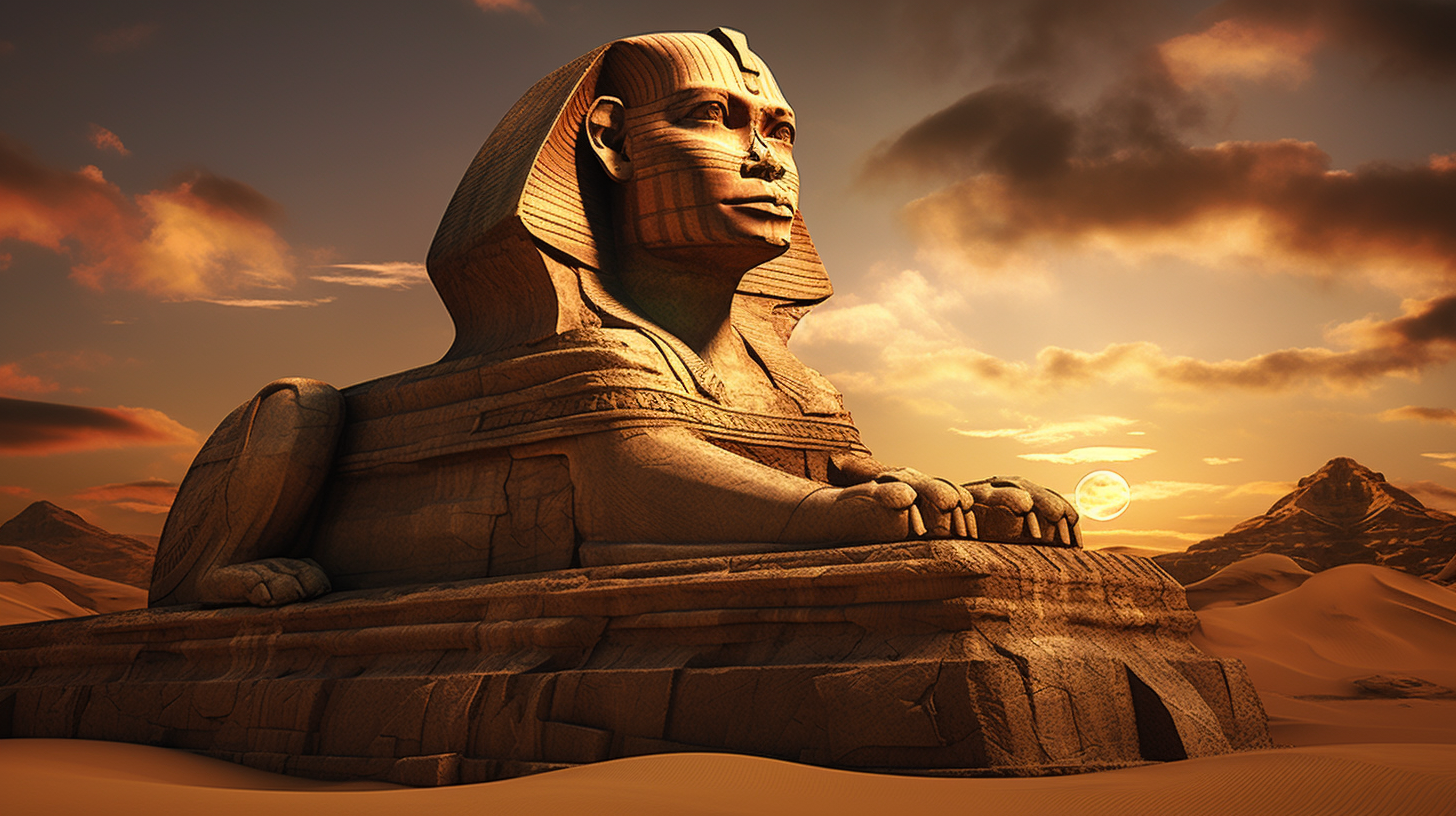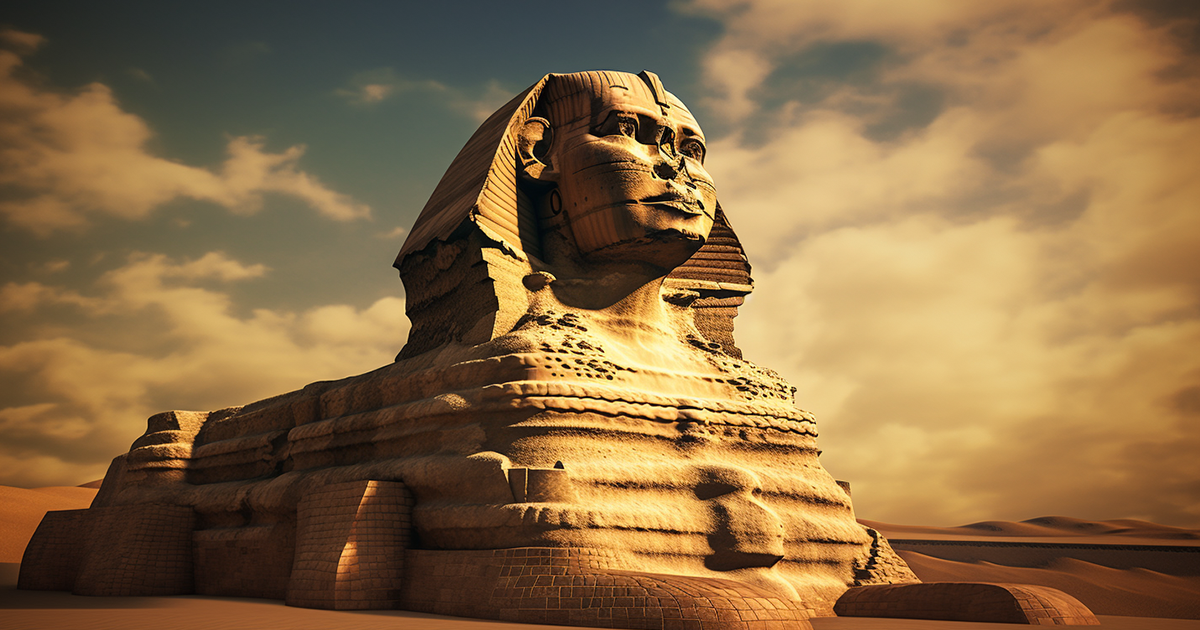The Sphinx stands as a testament to the unfathomable antiquity of ancient Egypt, transcending the millennia with its enigmatic presence. Amidst the marvels of the pharaohs, this colossal monument continues to captivate the world, invoking a sense of awe and curiosity. While it remains a symbol of the remarkable achievements of a bygone era, the age-old questions surrounding its origins and purpose persist, inspiring endless speculation.
Carved from the bedrock of the Giza Plateau, the Sphinx is believed to have been constructed during the reign of Pharaoh Khafre, around 2500 BCE. It is a massive limestone statue with the body of a lion and the head of a human, traditionally thought to represent the pharaoh himself. However, this conventional interpretation is not without controversy.
One theory suggests that the Sphinx predates the reign of Khafre and may have been the product of an earlier civilization. The erosion patterns on the statue’s body have been a subject of much debate, with some researchers arguing that they indicate water erosion, possibly from a time when the Giza Plateau experienced a wetter climate. This has led to speculation that the Sphinx could be thousands of years older than previously believed, pointing to the existence of an advanced, lost civilization that predated the dynastic Egyptians.

The purpose of the Sphinx is another puzzle that has eluded definitive answers. While many believe it served as a guardian figure, protecting the tombs of the pharaohs and temples of Giza, others propose more symbolic interpretations. Some suggest that it represents a guardian of ancient knowledge or a celestial marker, aligning with specific astronomical events.
The Sphinx’s connection to the pyramids of Giza is also shrouded in mystery. Its location, facing eastward, is thought to have been strategically chosen to align with the rising sun during the vernal equinox. This alignment has led some to theorize that the Sphinx played a role in religious or spiritual ceremonies related to the solar calendar.
In recent years, archaeological efforts and advanced technology have allowed researchers to delve deeper into the enigma of the Sphinx. Non-invasive techniques such as ground-penetrating radar and laser scanning have revealed hidden chambers and tunnels beneath the Giza Plateau. These discoveries have sparked further speculation about the possible existence of secret chambers beneath the Sphinx itself, waiting to be explored and understood.
Despite centuries of study and investigation, the Sphinx continues to confound and inspire. Its silent gaze across the sands of time invites us to contemplate the mysteries of the past and the limitless possibilities of human history. As we strive to unlock the secrets of this ancient marvel, we are reminded that the true essence of the Sphinx lies not only in its physical form but in the questions it raises about the untold stories of our distant ancestors and the enduring allure of their legacy.

18 thoughts on “The Timeless Mystery of the Sphinx”
Comments are closed.